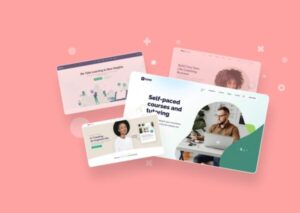Exams are a rite of passage in the academic world, and their significance cannot be overstated. They test our understanding, our memory, and our ability to apply knowledge.
But how do we ensure we’re ready for them? Enter quizzes. These short tests, often overlooked, can be the secret weapon in your exam preparation arsenal.
In this piece, we’ll explore how quizzes can enhance your preparation and why they’re so effective.
Effective Exam Preparation

A successful exam preparation hinges on a structured study plan. It’s not just about reading and rereading; it’s about understanding and retaining.
A fun fact: Did you know that our brains tend to forget 50% of new information within an hour if we don’t review it? That’s where the magic of quizzes comes in. They help in:
- Balancing comprehension and retention ─ They force you to recall information, solidifying your understanding.
- Addressing test anxiety and boosting confidence ─ The more you test yourself, the more familiar you become with the exam environment. This familiarity can reduce anxiety.
Speaking of quizzes, have you heard of Gizmo? It’s an AI-powered platform that offers quizzes to help you learn and remember anything. A tool like this can be a valuable addition to your study routine.
The Power of Learning
Beyond just about testing what you know; they’re about reinforcing your learning. Here’s how:
- Active vs. passive learning ─ Reading is passive. But when you take a quiz, you’re actively engaging with the material, which can lead to better retention.
- Retrieval practice as a cognitive tool ─ Every time you recall information during a quiz, you’re strengthening the neural pathways in your brain.
- How they stimulate memory recall ─ By acting as a prompt, nudging your brain to retrieve and reinforce the information you’ve learned.
Pro Tip: Don’t just take a quiz once. Revisit it after a few days. This spaced repetition can enhance long-term retention.
Incorporating into Study Routines

So, how do you make them a regular part of your study routine?
- Interleaved learning ─ Instead of focusing on one topic at a time, mix up topics and concepts. This approach can improve your ability to differentiate between similar concepts.
- Formative assessment ─ Regular quizzes can give you a real-time snapshot of your understanding, allowing you to adjust your study strategy accordingly.
- Tailoring to different learning styles ─ Not everyone learns the same way. Some prefer multiple-choice questions, while others benefit from short answer questions. Find what works for you.
Benefits for Exam Readiness
Not just a tool for assessment; they’re a tool for learning. Here’s why:
- Identifying knowledge gaps early on ─ Quizzes can highlight areas you need to focus on, ensuring you’re not caught off-guard during the actual exam.
- Enhancing long-term retention ─ Regular quizzing can reinforce your memory, making it less likely you’ll forget crucial information.
- Building familiarity with exam formats ─ The more you expose yourself to different question types, the more prepared you’ll be for the unpredictability of exams.
Creating Effective Materials
Crafting a good quiz is an art. Here are some pointers:
- Crafting varied question types ─ From multiple choice to short answers, variety keeps things interesting and tests different aspects of your knowledge.
- Aligning content with course objectives ─ Ensure your quizzes mirror what you’re expected to know.
- Balancing difficulty levels ─ Start with easier questions to build confidence, then gradually increase the difficulty.
Strategies for Maximizing Preparation
To get the most out of your base preparation, it’s essential to have a strategy in place. Some tips to help you maximize the benefits:
- Setting a regular schedule ─ Just like any other study habit, consistency is key. Set aside specific times for quizzing to ensure you’re regularly testing your knowledge.
- Analyzing results for insights ─ After taking a quiz, don’t just move on. Take a moment to review your answers, especially the ones you got wrong. This can provide valuable insights into areas that need more attention.
- Reviewing incorrect responses for deeper understanding ─ Mistakes are a part of learning. By understanding why you got a question wrong, you can avoid making the same mistake in the future.
Combining Quizzes with Other Study Techniques

Quizzes are powerful, but they’re even more effective when combined with other study techniques. Here’s how you can integrate them into your broader study strategy:
- Integrating with concept mapping and summarization ─ After taking a quiz, create a concept map or summary of the topic. This can help reinforce your understanding and identify any gaps in your knowledge.
- Using them as a precursor to more in-depth study methods ─ Before diving deep into a topic, take a quick quiz to gauge your current understanding. This can help you tailor your study session to focus on areas that need more attention.
- Leveraging technology for interactive and engaging experiences ─ Various platforms offer AI-powered quizzes that adapt to your learning style, making the experience more personalized and effective.
Overcoming Challenges and Pitfalls
While quizzes are a valuable tool, they’re not without their challenges. Here’s how to navigate some common pitfalls:
- Avoiding rote memorization through thoughtful usage ─ Quizzes should test understanding, not just memory. Ensure your quizzes challenge you to apply knowledge, not just regurgitate facts.
- Addressing potential time constraints with efficient design ─ Time is precious. Design your quizzes to be concise yet comprehensive, ensuring you’re getting the most out of each session.
- Dealing with frustration when struggling with questions ─ It’s natural to feel frustrated when faced with challenging questions. Take a step back, review the material, and approach the quiz with a fresh perspective.
Tools and Resources
The digital age has brought a plethora of tools and resources to make quizzing more accessible and engaging. Here are some to consider:
- Online platforms and applications ─ Many platforms offer a user-friendly interface to create and take quizzes, enhancing the learning experience.
- Utilizing teacher-provided materials ─ Many educators provide quiz materials as part of their course resources. Make sure to take advantage of these.
- DIY methods for generating effective content ─ If you can’t find a quiz that fits your needs, consider creating your own. This can also be a valuable learning exercise in itself.
Balanced Approaches
They are a tool, and like any tool, they should be used responsibly:
- Avoiding over-reliance or as the sole study method ─ While quizzes are effective, they should be one of many tools in your study toolkit.
- Balancing with deep understanding of concepts ─ It’s essential to strike a balance between testing yourself and truly understanding the material.
- Integrating as part of a holistic study strategy ─ Quizzes should complement other study methods, not replace them.
FAQ

How often should I take quizzes for optimal retention?
While the frequency can vary based on individual preferences, many experts recommend taking them at least once a week on a particular topic. This frequency allows for consistent reinforcement without causing burnout.
Can quizzes be effective for group study sessions?
Absolutely! Group study can foster collaborative learning. They allow participants to discuss and debate answers, leading to a deeper understanding of the material. Plus, explaining concepts to peers can reinforce one’s own understanding.
Are there any subjects or topics where quizzes might not be as effective?
They are versatile and can be applied to most subjects. However, for topics that require hands-on practice, like certain lab techniques or artistic skills, practical demonstrations and exercises might be more beneficial. They can still be used to test theoretical knowledge in these areas.
Conclusion
Quizzes are more than just a test of knowledge; they’re a tool for reinforcing learning, identifying gaps, and building confidence. By incorporating quizzes into your study routine and combining them with other effective study techniques, you can navigate exams with greater assurance.
Remember, the journey to exam success is a marathon, not a sprint. With the right strategies and tools, you can cross the finish line with flying colors.




